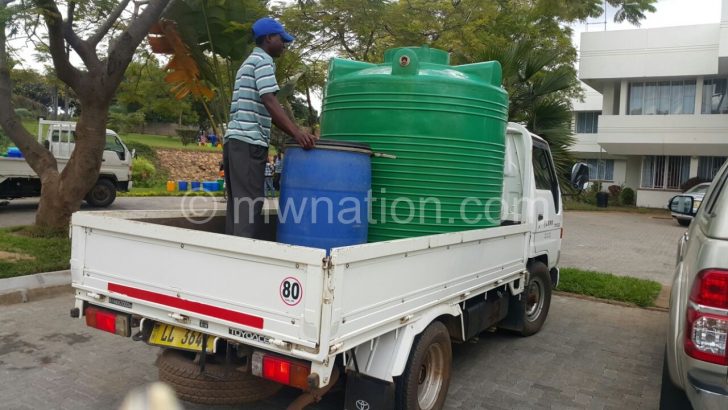ODPP nods to LWB on EIA
The Office of the Director of Public Procurement (ODPP) has issued Lilongwe Water Board (LWB) with a ‘No Objection’ to engage a consultant to conduct an Environmental Impact Assessment (EIA) for the Salima-Lilongwe water project.
The ODPP has approved LWB’s request to award a K160 million contract to a Portuguese firm, Nemus—Gestao e Requalificao Ambiental to conduct an independent Environmental and Social Impact Assessment and Resettlement Action Plan for Lake Malawi Water Supply Project to Lilongwe City and Surrounding Areas.

LWB chief executive officer Alfonso Chikuni, in an interview yesterday, confirmed the ODPP’s approval, adding that the Portuguese firm would begin its work immediately the contract is signed.
Chikuni explained that the contract’s budget is in two portions—$196 000 (K143.6 million at the current exchange rate) as fees to Nemus—Gestao and K17 million for local activities, bringing the total amount to K160.6 million.
Coincidentally, the letter from the ODPP to LWB is dated October 20 2017, being the same date the Malawi Supreme Court of Appeal dismissed a case by the Malawi Law Society (MLS), which was seeking a judicial review before implementation of the Salima-Lilongwe Water Project.
The MLS was arguing that the project could not proceed before an EIA was conducted, but the Supreme Court ruling by judge Lovemore Chikopa meant that Khato Civils, which was contracted by the LWB for the $500 million (K400 billion) project, was free to proceed with implementation of the project.
The ODPP letter to Nemus-Gestao is signed by the institution’s public relations officer Mary Mbekeani.
“Kindly be advised that ‘No Objection’ has been granted for you to proceed with the award of contract for independent Environmental and Social Impact Assessment and Resettlement Action Plan for Lake Malawi Water Supply Project to Nemus – Gestao e Requalificao Ambiental,” reads the letter in part.
The ODPP, according to the letter we have seen, which is copied to Secretary to the Treasury and the Auditor General, advises LWB to ensure that all formalities for effective administration of this contract are adhered to.
If this Esia is successfully conducted, it would meet MLS condition of implementing the project after the assessment is done.
But the MLS had their case against Khato Civils dismissed by the Supreme Court, effectively allowing the construction and engineering company to proceed with implementation of the project.
Determining the matter, the Supreme Court judge Lovemore Chikopa said all parties in the matter before the High Court, ceased to exist upon the expiry or lapsing of time the Law Society should have filed substantive summons for leave for judicial review.
The Law Society was supposed to file the substantive summons by May 5 2017, 14 days after the High Court granted leave for judicial review. But it only did this after nine days, according to court records.
The Supreme Court ruling has since left the lawyers’ body divided as some members have raised concerns on both the manner in which the litigation was conducted and the society’s decision to go to court in the first place.
MLS president Khumbo Soko has written a memo addressed to all members of the Law Society, expressing the body’s concern on members that are criticising its leadership and justifying why they had to go to court.
According to Soko’s memo which we have seen, the Law Society expresses disappointment with the outcome of the litigation, but hinted that they were consulting further on how it can take the litigation forward, in view of this technical setback.
Khato Civils is a construction and engineering company headquartered in South Africa and owned by businessman Simbi Phiri—a Malawian by parentage.
In its application for the judicial review, MLS had put LWB, Ministry of Agriculture, Irrigation and Water Development, the director of Environmental Affairs and Ministry of Natural Resources, Energy and Mining as respondents in that order.
In May, Khato Holdings Limited unveiled to the media multi-million kwacha machinery for the construction of the pipeline from Lake Malawi in Salima to Lilongwe, disclosing that $13 million (K9.8 billion) had already been invested.





